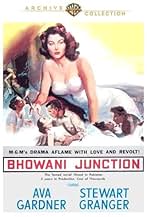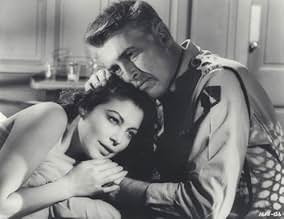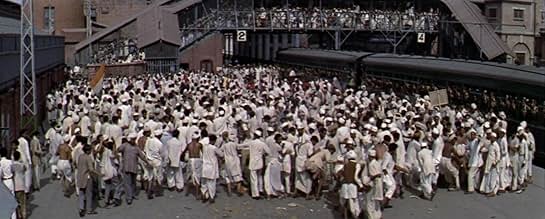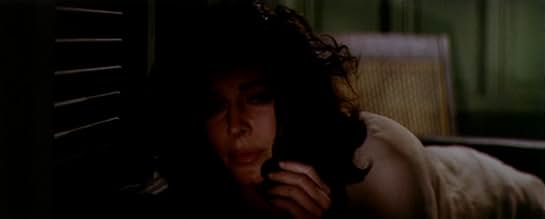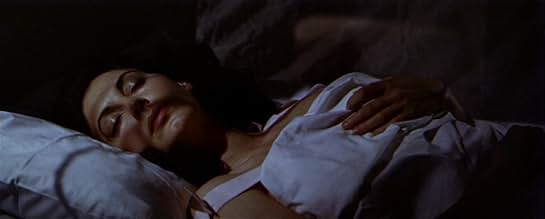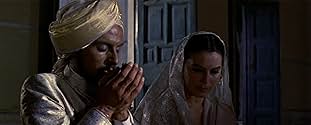IMDb RATING
6.4/10
2.2K
YOUR RATING
Anglo-Indian Victoria Jones seeks her true identity amid the chaos of the British withdrawal from India.Anglo-Indian Victoria Jones seeks her true identity amid the chaos of the British withdrawal from India.Anglo-Indian Victoria Jones seeks her true identity amid the chaos of the British withdrawal from India.
- Director
- Writers
- Stars
- Nominated for 1 BAFTA Award
- 2 nominations total
Ronald Adam
- General Ackerby
- (uncredited)
Anthony Bushell
- Lanson
- (uncredited)
Eric Corrie
- Man-at-Arms
- (uncredited)
George Cukor
- Man on Train
- (uncredited)
Roger Delgado
- Train Driver
- (uncredited)
Dharma Emmanuel
- Sentry
- (uncredited)
Raymond Francis
- Captain Cumberly
- (uncredited)
- Director
- Writers
- All cast & crew
- Production, box office & more at IMDbPro
Featured reviews
Well, I've always sort of identified myself as an AngloBanglo.
My dad was born in Lahore in 1929 and my grandparents left Karachi in 1965 almost 20 years after partition because the Muslims had made it impossible for my Nana to continue to run her private school.
The returned to England like so many AngloBanglos where they were too Indian for the white and not Indian enough for the Indians.
Just like they were back in what was then Pakistan and by some account, India itself.
You have to remember that at this point, as depicted in the film, 1947 was the cusp of partition and violence was everywhere. My grandfather told me graphic stories of entire trains of people slaughtered he had witnessed.
Ava Gardner's character has to choose which side she is on but for many AngloBanglos the struggle goes on. We are neither brown enough for the browns, nor white enough for the whites. I now live in Canada but I self identify as English.
The sub text in George Cukor's story has lost some of it's impact over time because few remember the upheaval of partition but for some of us, it bring it back into focus.
More interesting to me is that it was released the year I was born, in England, in 1956.
My dad was born in Lahore in 1929 and my grandparents left Karachi in 1965 almost 20 years after partition because the Muslims had made it impossible for my Nana to continue to run her private school.
The returned to England like so many AngloBanglos where they were too Indian for the white and not Indian enough for the Indians.
Just like they were back in what was then Pakistan and by some account, India itself.
You have to remember that at this point, as depicted in the film, 1947 was the cusp of partition and violence was everywhere. My grandfather told me graphic stories of entire trains of people slaughtered he had witnessed.
Ava Gardner's character has to choose which side she is on but for many AngloBanglos the struggle goes on. We are neither brown enough for the browns, nor white enough for the whites. I now live in Canada but I self identify as English.
The sub text in George Cukor's story has lost some of it's impact over time because few remember the upheaval of partition but for some of us, it bring it back into focus.
More interesting to me is that it was released the year I was born, in England, in 1956.
Produced barely a handful of years after the tumultuous period in question, the film delves further into events and attitudes that would have been comparatively unfamiliar to North American audiences - perhaps explaining, in part, its middling box office performance.
One can only speculate as to whether the project was part of a Cold War ploy to woo India away from its affection for Russia; however, dialogue early on does make specific reference to worries about Russian influence. If there's any validity to that speculation, then its ambitions extended beyond the box office (and might have been realized..?).
I agree with those commending director Cukor for his handling of the wide screen spectacle and action. I suspect that Richard Attenborough took notes from Cukor's visual approach in pre-planning his "Gandhi." Yes, other directors (e.g., Victor Fleming, Gone With the Wind, to mention but one) achieved more memorable tableaux; but this was an honourable entry in a still-evolving format at the time.
I'll yield to others' opinions on the performances - with the exception that I found Bill Travers's character and his portrayal were a one-note annoyance throughout. I mean, at least get a dialogue coach and find a credible accent, already!
It would be interesting to recover Cukor's original cut of the film, notwithstanding the apparently negative audience reactions at the time. The voice over post-facto narrative technique the studio imposed was hackneyed even then.
One can only speculate as to whether the project was part of a Cold War ploy to woo India away from its affection for Russia; however, dialogue early on does make specific reference to worries about Russian influence. If there's any validity to that speculation, then its ambitions extended beyond the box office (and might have been realized..?).
I agree with those commending director Cukor for his handling of the wide screen spectacle and action. I suspect that Richard Attenborough took notes from Cukor's visual approach in pre-planning his "Gandhi." Yes, other directors (e.g., Victor Fleming, Gone With the Wind, to mention but one) achieved more memorable tableaux; but this was an honourable entry in a still-evolving format at the time.
I'll yield to others' opinions on the performances - with the exception that I found Bill Travers's character and his portrayal were a one-note annoyance throughout. I mean, at least get a dialogue coach and find a credible accent, already!
It would be interesting to recover Cukor's original cut of the film, notwithstanding the apparently negative audience reactions at the time. The voice over post-facto narrative technique the studio imposed was hackneyed even then.
The epic "Bhowani Junction" took two years in production (1954-55) including the location shooting in Lahore, Pakistan. It is a great melodrama that circumvents the tumultuous times and events unfolding Sub-continent's partition and the socio-political upheaval associated with it.
The perplexed minds and characters of Anglo Indians filled with angst were the signs of those turbulent times as the British pack up for their home country in the aftermath of India's partition and Independence. Ava Gardner as Victoria Jones has outperformed in all facets of her central character in the movie, as she perfectly translates her persona and body language which is in complete sync with the abnormal circumstances taking new twists and turns of fate with every passing day. Stewart Granger as Col. Rodney Savage is equally superb in his majestically mature performance who takes hold of a crisis like situation on Bhowani Junction (shot on actual location of gigantic Lahore Railway station) with wisdom, sagacity and the grit to out maneuver the machinations of Hindu rebels or trouble makers. That were trying times and the British colonialists had to deal with unusual challenging situations.
The screenplay and direction by George Cukor speaks for itself and I personally feel that this gem of a movie is underrated and unfortunately did not do a roaring business on the box office, but for all the glory that was Hollywood during that golden era of cinema, Bhowani Junction presents a complete feature film coupled with cinema-scope colour production, evocative musical score composed by Miklos Rozsa,thoughtful direction, superb cast and wonderful acting skills of those classic actors of a bygone age. (Ten out of ten). A must see for serious viewers.
The perplexed minds and characters of Anglo Indians filled with angst were the signs of those turbulent times as the British pack up for their home country in the aftermath of India's partition and Independence. Ava Gardner as Victoria Jones has outperformed in all facets of her central character in the movie, as she perfectly translates her persona and body language which is in complete sync with the abnormal circumstances taking new twists and turns of fate with every passing day. Stewart Granger as Col. Rodney Savage is equally superb in his majestically mature performance who takes hold of a crisis like situation on Bhowani Junction (shot on actual location of gigantic Lahore Railway station) with wisdom, sagacity and the grit to out maneuver the machinations of Hindu rebels or trouble makers. That were trying times and the British colonialists had to deal with unusual challenging situations.
The screenplay and direction by George Cukor speaks for itself and I personally feel that this gem of a movie is underrated and unfortunately did not do a roaring business on the box office, but for all the glory that was Hollywood during that golden era of cinema, Bhowani Junction presents a complete feature film coupled with cinema-scope colour production, evocative musical score composed by Miklos Rozsa,thoughtful direction, superb cast and wonderful acting skills of those classic actors of a bygone age. (Ten out of ten). A must see for serious viewers.
Stars are the primary reason for me to watch old movies, because they just don't make them like that anymore. 'Bowani Junction' provides some of the best; Ava Gardner is so irresistibly attractive in this movie that watching her along is worth every penny spent for buying the copy. Better yet, other things in the film are also good. Granger, playing a more realistic role, is at his best elements as a daring arrogant English Col., match nicely with the beautiful Gardner as a romantic couple. Most of the Indian characters are well portrayed and I love movie with a historical background . The story is complicated ,yet well told and paced. The characters are interesting and well presented. Over all, this is Cukor's movie at its usual fine standard.
This one is not to miss for fans of Granger, Gardner, and Hollywood oldies.
This one is not to miss for fans of Granger, Gardner, and Hollywood oldies.
This film could have been wonderful if some of the parts had been given to Indian actors. For instance, Hollywood and British studios make believe that Indians speak English in a sing-song manner. They might have heavy accents but few speak English that way. Freda Jackson's role as "the Sadani" (could it have been an ignorant variation of "Sardarni"?) was incredibly stupid casting in that she spoke impeccable English for a middle-class Sikh lady. This apart Jackson was able to dominate her screen time.
I would have liked to dismiss this film as a below average film but for the incredible performance of Ava Gardner who towers over all else in the movie. Take her accent--for an American, there was no trace of her origins when she spoke. She alone looked real with raven black hair in a sari draped in foppish manner--after all she was an Anglo-Indian. Had she worn well like an Aishwarya Rai, Cukor would have got it wrong.
Cukor deserves full credit for choosing Gardner for the role and for capturing the ambiance of romantic North Western Railways, its first class coaches, the engines and goods wagons. A keen observer will note that some of the shots of goods wagons showed vintage wagons, while others showed contemporary ones.
Though shot in Pakistan, the film caught the Indian ambiance perfectly, right up to the Railway quarters for its staff.
Ava Gardner, it is only too evident, performed well under the guidance of good directors as John Houston. This film and "Night of Iguana" are my personal favourites among her films.
I would have liked to dismiss this film as a below average film but for the incredible performance of Ava Gardner who towers over all else in the movie. Take her accent--for an American, there was no trace of her origins when she spoke. She alone looked real with raven black hair in a sari draped in foppish manner--after all she was an Anglo-Indian. Had she worn well like an Aishwarya Rai, Cukor would have got it wrong.
Cukor deserves full credit for choosing Gardner for the role and for capturing the ambiance of romantic North Western Railways, its first class coaches, the engines and goods wagons. A keen observer will note that some of the shots of goods wagons showed vintage wagons, while others showed contemporary ones.
Though shot in Pakistan, the film caught the Indian ambiance perfectly, right up to the Railway quarters for its staff.
Ava Gardner, it is only too evident, performed well under the guidance of good directors as John Houston. This film and "Night of Iguana" are my personal favourites among her films.
Did you know
- TriviaMGM originally planned to film Bhowani Junction on location in India. That is, until the Indian government started making demands seeking script approval and a big tax payment of 12% of the film's worldwide net profit. MGM changed their plans and decided to film instead in Pakistan - whose government was more accommodating and less demanding of the studio. And this made the picture the first Hollywood film produced in that country.
- GoofsWhen Savage is first in Taylor's office giving him orders about the trains, he says, "One of you will have to be in close touch with me at all times so that my trolley patrols do not run into unscheduled trains." He says the word "unscheduled" using the American "sk" pronunciation, but as an Englishman he would have pronounced it using the British "sh" sound.
- Quotes
Victoria Jones: Why should you stand by me? You're not an Anglo-Indian?
Col. Rodney Savage: You're an officer under my command.
Victoria Jones: Say, eh, I, all these weeks I've known you, this is the first time I've realized there's a human being inside you somewhere.
Col. Rodney Savage: Oh, he's still there, is he? Good. Then, there's hope for us all.
- ConnectionsEdited into Histoire(s) du cinéma: Une histoire seule (1989)
- How long is Bhowani Junction?Powered by Alexa
Details
Box office
- Budget
- $3,637,000 (estimated)
- Gross worldwide
- $3,657
- Runtime1 hour 50 minutes
- Aspect ratio
- 2.35 : 1
Contribute to this page
Suggest an edit or add missing content

Top Gap
By what name was La Croisée des destins (1956) officially released in India in English?
Answer

